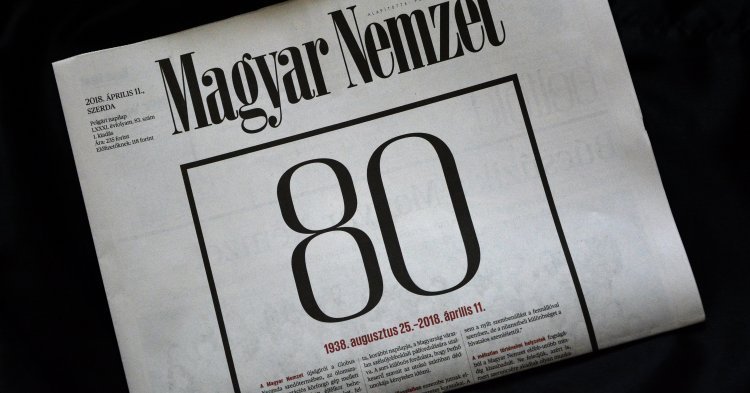Le Taurillon - Laura Mercier
We have to support and help NGO and activists in Orban’s Hungary
Another term for Viktor Orban, another term of threats and attacks against freedom of press, NGO, refugees, Universities. Another term for Viktor Orban, another term of restrictions toward minorities and more anti-EU rhetoric. The list of victims of Orban’s policies would be too long for one article. While the Council of Europe has shared its concern over the new “Stop Soros” package of laws which aims at restricting and controlling even more NGO’s activities, we shall share our support to anyone working and being activist under Viktor Orban’ government. Many need NGO’s help in Hungary, they can’t give up.
Viktor Orban is going to keep undermining civil society and democratic values. This “Stop Soros” package would give to the Hungarian Interior Minister the power to deny permission to any organisation, to impose more taxes on foreign donations to NGO that help and support refugees in Hungary, and any foreign citizen supporting migration could actually be banned from Hungary. Isn’t freedom of opinion a fundamental principle of our European Union, one of our basic human rights? Isn’t freedom of speech at the core of democracy?
Clearly, forcing Viktor Orban and its friends to reading the Universal Declaration of Human Rights and the Charter of Fundamental Rights of the European Union won’t have any impact despite the symbolism and force they represent. Clearly, calling Viktor Orban a “dictator” as Jean-Claude Juncker did is not going to make him feel guilty. Clearly, calling for more democracy through speeches from Brussels is not going to change anything. This large win for Viktor Orban and his party, and the warm congratulations he received from some of the European People’s Party members is bad news and alarming, one year before the European elections. We need the European Union to stand for its values and principles, to protect the victims of Viktor Orban’s shameful policies. We need the European Union to take its responsibilities against the banalization of far-right politics in Europe.
Treffpunkt Europa - Gesine Weber
Let’s be a voice for those who are silenced
Since his first re-election as the Prime Minister of Hungary in 2010, Viktor Orbán has continuously tightened his grip on the independent media and the freedom of the press. According to the NGO Reporters Without Borders, Hungary is ranked the 71th among 181 countries - behind states like Haiti, Niger or Georgia. Orbán’s victory last week is barely surprising: How could pro-European and progressive forces have been able to make their voice heard in a country where all important regional media are owned by businessmen with close ties to the Prime Minister, where the government prepares content for the public broadcasters and where critical media are forced into bankruptcy? How could the opposition have had access to the public in a regime where the state-owned media lead smear campaigns against every potential adversary of Fidezs, and how could Hungarians be informed by independent media when they are restricted access to the parliament? Following Orbán re-election last Sunday, the most important daily newspaper stopped operating, the freedom of the press is de facto undermined in Hungary.
Orbán’s measures against the freedom of the press are not only a problem for Hungary, they constitute a vital threat for the European Union. If it wants to keep existing on a long-term base, the EU cannot afford misinformed citizens and growing euroscepticism resulting from this lack of information. At the very moment, the EU limits its action to watching what is going on, desperate attempts to counter Orbán’s anti-EU-propaganda with campaigns like “facts matter”, and .sometimes criticism or using a fancy but ineffective legal tool. However, this does not help the people in Hungary. We must not forget that there are still people demonstrating against Orbán on the streets, that critical journalists keep publishing on the internet, and that the civil society is not dead, even if Orbán wishes so. As journalists who benefit from the freedom of press, it is our task to report on their struggle against the subjugation of the press, to form critical minds outside and inside Hungary showing their solidarity with journalists and democratic forces, and to advocate for the vital importance of the freedom of a press in a democratic Europe. Orbán has the power to silence Hungarian journalists - but not journalists all over Europe.
The New Federalist - Radu Dumitrescu
The Tsar’s Favorite
In 1989, a young Viktor Orban climbed on stage and demanded that the last Russian troops leave Hungary for good. Fast-forward to the present, and one can find Orban as the staunchest ally of Moscow in Europe, a leader that almost molds his policies on those coming out of the Kremlin.
The initial change took place in 2010. Dealing with the economic crisis, Orban’s government took a positive outlook on Russia as part of its anti-migrant and anti-Brussels rhetoric. The enemies of old became unspoken allies against the controlling European Union. After 2010, Putin and Orban started meeting annually. Ever since, the policies taken up by the Hungarian PM included the gerrymandering of the electoral map, an anti-NGO law that seems identical to Russian Foreign Agency Act and a crackdown on critical media. Moreover, in good Tsarist fashion, Orban surrounded himself with government-connected businessmen and family members, giving out contracts preferentially.
Ever since the election of Donald Trump, European countries have feared Russian meddling in the democratic process. Not Hungary. Orban’s government was already smothering media and promoting a good image of Russia. State-tied Hungarian newspapers and TV stations repeatedly take stories from Russia Today or Sputnik, mouthpieces of the Kremlin.
Moreover, Poland’s Jaroslaw Kaczynski takes no concern over Orban’s Russian links, supporting his fellow EU critic to the end. Increasingly conservative and nationalistic, both Poland and Hungary have strengthened their ties in view of their opposition to Brussels. One can only hope that this does not lead to an alignment of Visegrad countries around Russian interests. “Illiberal democracy”, “sovereign democracy” or “original democracy”, all ways of describing authoritarianism without the actual word, have been inspired by Putin and his model of ruling.
Europe needs presidents, prime ministers and chancellors, not tsars.
Kurier Europejski - Michał J. Ekiert
Another victory of the lowest instincts
As we all have been perfectly reassured, a Hungarian (and, quite unconsciously, Hungarian’s) nightmare called Fidesz stands firm. What’s even more worrying, the main opposition’s spot has been taken by Jobbik, party which causes Orban to appear coolish. If they are the ones who constitute an alternative, it’s a quite rational explanation for the congratulations sent to Orban by the various European politicians.
‘Illiberal state’, as Orban himself described the political entity he’s been governing, isn’t a kind of state where an act of political campaigning is conducted in a civilised manner, which has been recently proven by the OSCE’s monitoring mission, whose headman described the rhetoric used as ‘quite hostile’ and ‘xenophobic’. Support given to Fidesz by the public television was highly noticeable.
Billboards and letters sent to people with a profoundly negative leaning towards anything and anyone not Hungarian enough as a government’s manner of campaigning, moreover, financed by the taxpayers, clearly remind me of historical events from my country of birth, where a big-tent party of marshal Piłsudski defrauded big sums of money in 1928 and used them to cover the expenses of their rough campaign against the democratically-inclined parties. EPP’s stance, which is a sort of neutral-congratulatory mishmash, makes me feel especially concerned.
Before the next election, voters of Hungary need to be provided with an accurate data, unbiased media and strong changemakers. Not everyone will be willing to change their saddening beliefs, but everyone should be reached by both sides, and that’s what hasn’t been delivered in this month’s election due to an unfair campaign. When it will happen, as other Visegradians say, in the end, pravda vítězí, the truth prevails.
El Europeista - Xesc Mainzer
The night that doesn’t end
On early February I visited Budapest, Hungary’s capital. I remember it as an open, beautiful city with rich culture and historical points of interest. But there was one thing that struck me hard, and that was the absurdly huge presence of billboards on roads and bus stops with a campaign named “Stop Soros!”. It wasn’t only the presence of that campaign’s posters, but the fact that they were there under the banner “Kormány Információ” (Government Information in Hungarian). In the last month, these posters have been joined by others showing pictures of refugees walking along a road and the motto “Stop!” on a roadsign over the picture.
What I got clear at that moment was that Hungary’s government was drifting dangerously to an incredibly high degree of racism and paranoia over alleged foreign intervention on the country. At the same time they are rallying for the sovereignty of Hungary, foreign investment pours in from the authoritarian regimes in China and Russia.
Last Sunday, pictures of thousands of voters queuing in front of the polling stations around Hungary gave many of us hope. Hope that the most authoritarian government in the European Union could be replaced with another one driven by ideals of liberal democracy, freedom and wider civil rights. It was difficult, as the second most voted party was expected to be Jobbik, another far-right party. In the end, it was proved that the mission was almost impossible, and the night that’s been covering Hungary for 8 years will continue for at least 4 more years.







Follow the comments: |
|
